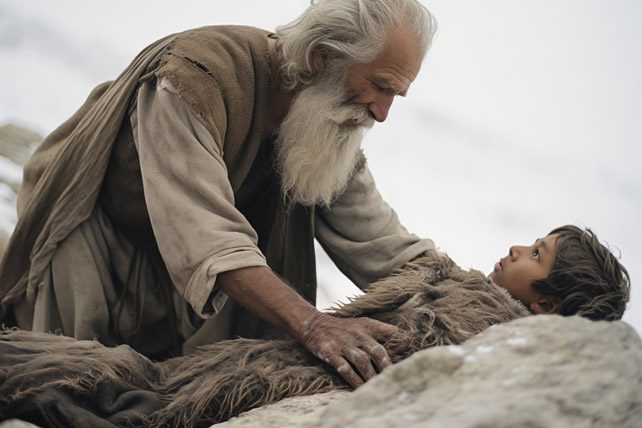Why did Abraham sacrifice his son? The story of Abraham’s willingness to sacrifice his son, Isaac, is one of the most compelling narratives in both Christianity and Judaism. It has captivated theologians, scholars, and believers for millennia. This account, which raises profound questions about faith, obedience, and divine benevolence, continues to be a source of spiritual reflection and ethical debate. In this exploration, we delve deeper into the various elements of this biblical event to gain a clearer understanding of its implications and teachings.
God’s Command and Abraham’s Dilemma
God’s Command:
The narrative begins with God issuing a command to Abraham, testing his faith to the utmost. In a chilling and unexpected request, God says, “Take your son, your only son, whom you love—Isaac—and go to the region of Moriah. Sacrifice him there as a burnt offering on a mountain I will show you” (Genesis 22:2). God’s directive shocks the reader and undoubtedly shook Abraham to his core. However, Abraham responds with an unfathomable level of obedience and set out to follow God’s command without question.
Abraham’s Journey:
Why did Abraham sacrifice his son? Abraham’s journey to Mount Moriah is fraught with emotional turbulence and moral complexity. He travels for three days with Isaac, servants, and the materials needed for the sacrifice, all the while pondering the act he is about to commit. Abraham’s internal struggle is not explicitly detailed in the scriptures, leaving the reader to imagine the turmoil of a father asked to take the life of his promised son. Yet, it’s this very silence about Abraham’s thoughts that intensifies the narrative and speaks to his unwavering faith.
Did Abraham Sacrifice His Son?
The climax of the story occurs when Abraham builds the altar, binds his son Isaac, and lays him upon the wood. As he raises the knife to slay his son, an angel of the Lord calls out to stop him, saying, “Do not lay a hand on the boy. Do not do anything to him. Now I know that you fear God because you have not withheld from me your son, your only son” (Genesis 22:12). Abraham looks up and sees a ram caught by its horns in a thicket, which he sacrifices in place of his son. The critical point of intercession demonstrates that Abraham did not go through with the sacrifice of Isaac; instead, his dutiful compliance with God’s command is interrupted – a sign of God’s and mercy.
Interpreting the Symbolism
The symbolism of this narrative is potent and multidimensional. On one level, it prefigures the sacrifice of Jesus Christ, the ‘Lamb of God’ who was offered for the sins of humanity. Similarly, Isaac carrying the wood for the offering draws parallels to Christ bearing his cross. This portrayal of impending sacrifice transitions into a story of deliverance and redemption, echoing the themes of sacrificial love and providence that are central to Judeo-Christian belief.

